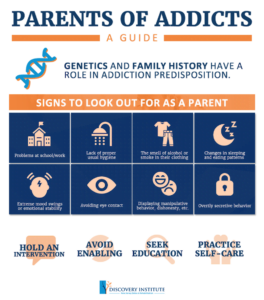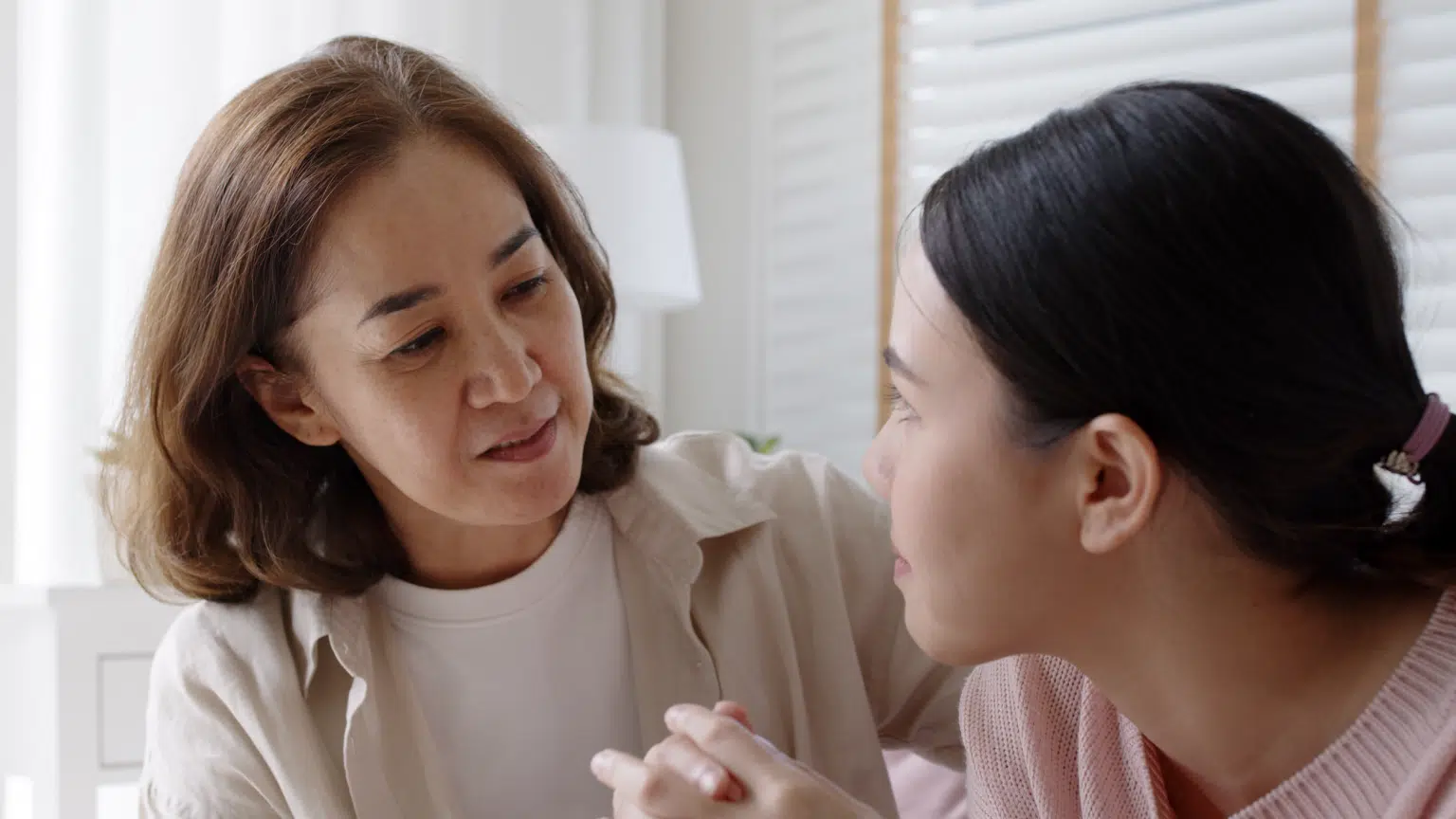A Guide for Parents Of Addicts
This guide for parents helps you to understand the potential addiction problem in your teens and children.
Addiction is a serious disease. It is no respecter of persons; it can affect people from all walks of life. Substance abuse can impact the lives of young people and older individuals. Sadly, many families throughout the world know all too well how drug addiction and alcohol abuse can affect individuals who suffer from these disorders. But, perhaps no one is more impacted by addiction than the parents of addicts.
The truth of the matter is that your child is suffering from a disease. While your son or daughter made the initial choice to use drugs or alcohol, the addiction that developed afterward is not a choice. It is an illness.
When a person suffers from substance abuse, the disorder can affect every area of his or her life. Substance addiction can impact a person’s emotional health, leaving the individual with symptoms of depression or anxiety. It can also harm the individual’s mental health. This may lead to mental illness and cause issues such as memory problems.
In most cases, drug abuse and alcoholism lead to physical health problems. Those battling addiction may develop health complications such as fertility problems, high blood pressure, liver disease, cancer, stroke, and more.

What Causes Addiction to Develop?
The first thing parents of addicts should know is that there is probably not just one cause for addiction. Many factors can play a role in the development of addiction, and each case is different. Most mothers and fathers of addicted children might think that the sole cause could be negative influences and bad company. While that could be one of the reasons why they became addicted, it is not the only possibility.
Genetics and family history have a role in addiction predisposition. Specific genes have been linked to it. If a mother or father has a history on their side, this puts their son or daughter at risk.
Also, individuals who were raised in unhealthy environments may be likely to struggle with substance abuse when they get older. An unstable childhood can lead to emotional instability, feelings of lack of control, and constant insecurity. That and other problems can push individuals into self-medicating with alcohol or illicit drugs.
Another main issue that could trigger substance use disorders is mental illness. Some kids might need to begin taking medication to treat these mental health challenges at an early age. While these medications aren’t always an issue, they can become problematic after using them for a while. Taking prescription medications like Ritalin can lead to addiction if not taken properly or in cases of misuse.
Some teenagers might engage in underage drinking as well to try to help them deal with the symptoms of their mental health disorders. This can lead to a dual diagnosis consisting of substance use disorder and a mental health disorder.
Whatever the cause may be of your child’s addiction, it is important to know that your son or daughter needs professional help. Learning more about how to support and guide your loved one is essential.
CONTACT US
Find out how we can help
Our compassionate counselors are standing by to answer any questions you may have. After helping thousands of people over the last 50 years, we have the resources to help you and your family and all your individual needs.
The Challenges of Having a Child Struggling With Addiction
Addiction can lead people to make poor decisions, which can have an adverse effect on their families. Mothers or fathers may become caretakers of their addicted children. Or, they may have to become guardians of their grandchildren if their children are no longer able to care for their kids.
Feelings of guilt can lead parents of addicted individuals to struggle with enabling behaviors. The parental instinct to take care of one’s child can be difficult to navigate when addiction is in the equation. Parents of addicts may also find themselves unintentionally enabling their children. They may meet the financial needs of their child or provide a place for them to live. This can, unfortunately, encourage their addicted children to continue using their resources to acquire drugs and alcohol.
Those who are struggling with addiction to drugs or alcohol may have difficulty keeping up with family responsibilities. They may not be able to hold down jobs as a result of their alcohol abuse or drug use.
Identifying Signs of Addiction In Your Child
If you believe your child is struggling with addiction, keep an eye out for early signs of substance abuse. The development of addiction is a gradual process; it doesn’t occur overnight. Just a few of these red flags might have nothing to do with addiction, so it is important to contextualize said signs. Your child may need substance abuse treatment if you notice the following signs and symptoms:
- Performance issues at school or work
- Loss of interest in activities and people that they once enjoyed
- Lack of proper, usual hygiene and diminished personal appearance
- Avoiding eye contact (especially a problem in case of bloodshot eyes)
- The smell of smoke and/or alcohol on breath or clothes
- Overtly secretive behavior most of the time
- Changes in eating and/or sleeping habits (too much or too little)
- Displaying manipulative behavior, dishonesty, etc.
- Extreme mood swings or emotional stability, sometimes acting paranoid
- Lack of concentration and/or memory

If your son or daughter is suffering from substance abuse, you may want to talk to your addicted child about it directly. It is important to keep the dialogue open and discuss issues related to the individual’s addiction. You shouldn’t wait for things to get worse to have a conversation. Your son or daughter needs your help during this time.
Help For the Parents of Addicts: What To Do

As the parent of an addicted individual, it can be difficult to know how to help your child. Whether your child is a teenager or an adult, the weight of this struggle is undeniable. Here are a few suggestions for you as you navigate through this challenging time.
Your adult child’s alcohol or drug use is likely affecting the lives of everyone around them. As a parent, you may not know exactly what to do to help your son or daughter.
If your son or daughter is struggling with substance abuse, you may need to step in and play new roles. You may find yourself looking after your adult child’s affairs. Perhaps you have to work an extra job to take care of your grandchildren. Maybe your child has been in legal trouble and you’ve had to deal with the challenges that come with such issues.
In all of the chaos that surrounds your child’s addiction, perhaps you’ve lost touch with your feelings. It can be difficult to keep up with your self-care when you constantly have to spend time taking care of others.
But, you must take care of yourself. Get involved in support groups. Surround yourself with people who give you emotional support. If you can, seek family support and ask loved ones to help you.
Sometimes the best way to support a loved one who is suffering from substance abuse is from afar. If you need to distance yourself from your child to prevent enabling behaviors from taking hold again, do so. Once your daughter or son gets the necessary addiction treatment, you may be able to be a part of his or her life again.
There’s often a fine line between loving your child and enabling him or her. It can be difficult to avoid enabling your child. Again, enabling often happens unintentionally. It might come in the form of excusing your child’s behavior. Perhaps it’s financial support. In any case, it is important to discover any enabling patterns and behaviors in your life.
Avoiding these actions can help jumpstart your child’s addiction recovery. You can set boundaries to help your son or daughter. Doing so can play a role in encouraging your son or daughter to attend rehab.
Your son or daughter may be tempted to drink or use drugs if he or she finds these substances in the home. Keeping your child away from substances they might abuse is critical. Many teens and young adults begin experimenting with drugs and alcohol by getting into their parent’s medicine cabinets and alcohol inventories. You can help keep your child safe by keeping substances away from them.
Again, you may want to speak directly with your child about his or her substance abuse problems. This may help your child to know that he or she is not alone. It can also open up the way for healthy communication between you and your child.
However, in many instances of addiction, approaching the struggling person alone may not produce desirable results. This is when an intervention may become necessary. You may need to hold an intervention along with family members, friends, and a professional interventionalist. This meeting can encourage your daughter or son to seek help through drug and alcohol treatment programs.
Overcoming the disease of addiction is far from easy. Many parents of addicted individuals struggle to know how to help their kids.

Helping Your Child Get Addiction Treatment
Individuals who are suffering from substance abuse should receive professional addiction treatment. Rehab for alcoholism and drug misuse can help begin the healing process. Treatment programs are generally essential in the journey to recovery from drug or alcohol abuse. If you are the parent of a person dealing with addiction, rest assured that your loved one can get help here at The Discovery Institute
Detoxification clears the body from the toxins of drugs and alcohol. It is often challenging for people to end drug or alcohol use due to the symptoms of withdrawal that occur. A medical detox process can help people as they go through withdrawal. The pain, mental challenges, and emotional struggles that often occur during withdrawal can become more bearable with the help of medical detox.
A residential alcohol and drug rehab program will allow individuals to work through recovery while living at a treatment facility. This can be extremely beneficial for those who struggle with self-control, have an unhealthy home environment, or need around-the-clock access to care.
Inpatient treatment programs can be essential to the healing process as it allows people to develop a healthy life away from the challenges that may face them in the outside world. This can make all the difference for those who are striving to recover from addiction.
An outpatient treatment program allows recovering individuals to receive help for addiction without living at a treatment facility. People can work through recovery while living at home or in a sober living environment.
Make no mistake, however; outpatient treatment still provides the necessary support for those who are working through recovery from substance misuse. This type of treatment program still enables people to receive comprehensive treatment for substance abuse.
Therapy for substance misuse is a significant component of a healthy recovery journey. Addiction has negative effects on the brain and body. Counseling addresses those areas, helping people to develop healthy ways of thinking and behaving. Therapy allows people in recovery to discuss their challenges in a judgment-free zone. It provides a place for people to establish a healthy peer group, process trauma, deal with stress, and more.
 Let Discovery Institute Help Your Family Today
Let Discovery Institute Help Your Family Today
Getting addiction treatment as soon as possible will help improve your child’s chances of becoming free from addiction. They don’t have to be in this for the long run, and there is help available for all ages.
As a parent, we know that you feel concerned about your child’s health and life. But, please know that, no matter how young or old your child is, there is hope. Your family can find healing through recovery.
If you would like to know more about how a drug rehab program can help your child, contact Discovery Institute today. You should only leave your kids at the hands of people you trust, and it is only right that you get all the information you need to make an informed decision. There is hope and there are options for your family to recover and become happy again.
 Let Discovery Institute Help Your Family Today
Let Discovery Institute Help Your Family Today


